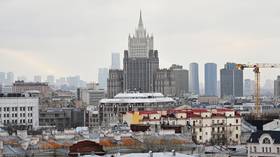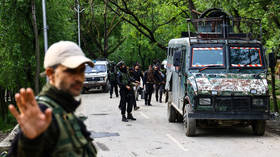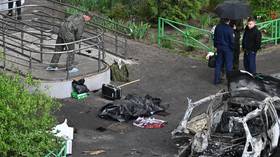Olympic fever? Tourists may be unaware Japan IMPORTED Ebola in preparation for 2020 games
The Japanese government has imported strains of Ebola and four other lethal pathogens to research possible countermeasures should an outbreak occur with the vast influx of athletes and tourists at the Tokyo Olympics in 2020.
The Japanese health ministry's National Institute of Infectious Diseases (NIID) has begun tests on live samples of Ebola, Crimean-Congo haemorrhagic fever, South American haemorrhagic fever, Marburg disease, and Lassa fever to validate existing and developing tests used to help contain any potential outbreaks and mitigate the risks of a major public health emergency.
All five viral agents had never been introduced to Japan before and are the most dangerous biological agents ever held and studied at the lab in Musashimurayama on the western side of Tokyo, in what has been described as “a landmark event” by NIID departmental director Masayuki Saijo.
The NIID’s laboratory in Musashimurayama operated as a Biosafety Level-3 (BSL-3) lab for decades, but was eventually upgraded to BSL-4 in 2015 to handle the most dangerous pathogens known to man, despite opposition from nearby residents.
Also on rt.com Cycle of panic & death: Humankind totally not ready for global pandemic, emergency preparedness group warnsAuthorities argue that the risk of being unprepared for such an outbreak through lack of study and understanding far outweighs the potential risk of failing to keep them contained in a controlled and highly secure environment.
Meanwhile, the Japanese medical scientific community welcome the decision to bring in the pathogens for study, but acknowledge that the risk of an outbreak during the Olympics is negligibly higher than at any other time.
The NIID will use live samples to validate tests to determine whether a patient is still infectious by measuring antibody production. Saijo told Nature that the research will also help Japan prepare for an equally unlikely, but potentially catastrophic, bioterrorism attack.
A second BSL-4 lab is under construction at Nagasaki University in southern Japan and is due to open in 2022.
Think your friends would be interested? Share this story!













